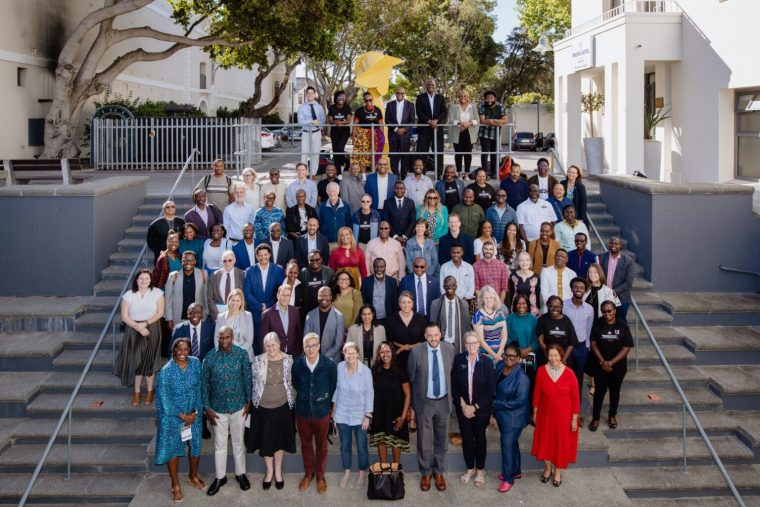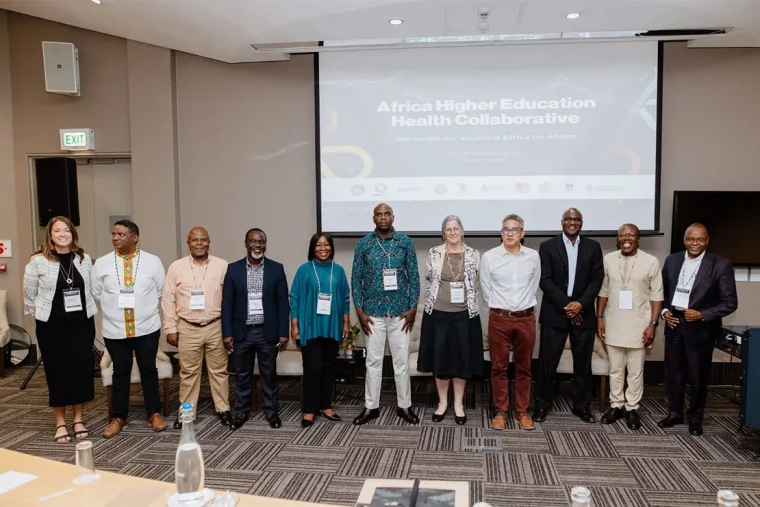The University of Toronto, the Mastercard Foundation and a network of leading African universities are embarking on a 10-year initiative to enhance primary health care workforce education, entrepreneurship and innovation across Africa.
The partnership, known as the Africa Higher Education Health Collaborative (AHEHC), was launched in 2022 and aims to bolster the continent’s health sectors as part of efforts to improve care for millions while supporting youth employment and economic growth. Participating institutions from Africa include Addis Ababa University, the African Institute for Mathematical Sciences, African Leadership University, Amref International University, Ashesi University, Kwame Nkrumah University of Science and Technology, Moi University and the University of Cape Town.
The AHEHC partners are committed to reshaping the health-care landscape in Africa by preparing young people for meaningful work in health and wellness through contextually appropriate and sustainable primary health care.
According to a 2022 survey of 47 countries in Africa, there’s an average of only 1.55 doctors, nurses, and midwives per 1,000 people, significantly below the WHO’s recommended ratio.
AHEHC was a key topic at a 2023 meeting in Cape Town, South Africa that focused on a collective goal of enhancing the health sector to benefit African societies. The gathering included several U of T leaders: Joseph Wong, vice-president, international; Trevor Young, dean of the Temerty Faculty of Medicine who is now vice-president and provost; and Wisdom Tettey, vice-president and principal of U of T Scarborough. Representatives from all partnering institutions also participated.
“The Africa Higher Education Health Collaborative is part of a larger movement – driven by Africans for Africans – aimed at enhancing the continent’s economic vitality, improving access to health care and generating fulfilling employment in the health sector,” Wong said.
“The members of this collaborative are working hand-in-hand to advance local priorities and leverage our collective resources to create a healthier, more sustainable future, with each partner contributing to and learning from the others.”
Wong added that AHEHC’s work is guided by the idea of co-creation – an approach that was evident at the October 2023 convening as the partners cemented the mutual relationships, laying the foundation for the widespread adoption of African-led solutions across the network.
U of T’s participation in the AHEHC aligns with the university’s broader Africa strategy, which encompasses various initiatives from entrepreneurship exchanges to high-level summits involving representatives from universities, governments and various international development groups. It is guided by the President’s International Council on Engagement with Africa and is outlined in the university’s International Strategic Plan 2022-2027, focused on global reach, global learning and global impact.
“We aim to tap into the tremendous young talent and vast opportunities across the continent while addressing challenges facing Africa’s primary healthcare systems, including severe worker shortages,” said Penina Lam, U of T’s senior director of international relations, who is leading AHEHC’s implementation.
AHEHC’s initial focus will be in Ethiopia, Ghana, Kenya, Rwanda and South Africa, aiming to strengthen health sectors. Through hands-on training in various disciplines, AHEHC seeks to prepare the next generation of health-care practitioners. The approach aims to enhance the delivery of high-quality primary care, stimulate economic growth and develop robust societies. This aligns with the Mastercard Foundation’s Health Strategy, which seeks to create three million dignified and fulfilling jobs in primary care, with an emphasis on employment opportunities for women and young people.
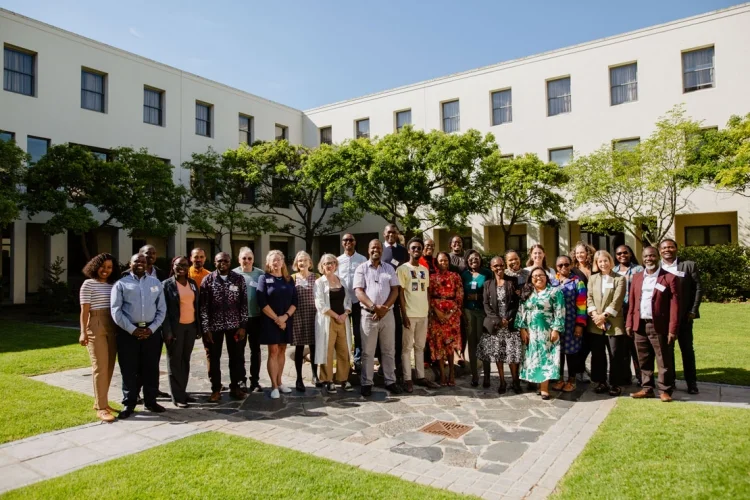
As the secretariat for the initiative, U of T plays a supportive role in co-ordinating collaborations and programs tailored to each partner’s local health priorities, needs, assets and expertise. This involves facilitating learning, development and implementation across the network, managed by a team in Canada and through three regional hubs in Africa.
For example, the Temerty Faculty of Medicine’s department of family and community medicine partnered with the Kwame Nkrumah University of Science and Technology. Together, they co-delivered continuing education courses for primary care workers in critical areas such as palliative care. About 100 Ghanaian primary care professionals participated in the courses this fall.
This program is among many guided by AHEHC’s three pillars: health employment, focusing on workforce development; health entrepreneurship, which supports the creation of businesses that will produce health innovations and self-employment opportunities; and health ecosystems, which engages partners in government, corporations, non-profits and other institutions in the collective effort to transform the health sector.
AHEHC will also build on the success of the Mastercard Foundation Scholars Program, ushering in a new cohort of graduate students from countries in Sub-Saharan Africa to pursue their studies at U of T over ten years.
AHEHC leverages U of T’s longstanding, mutually beneficial relationships with institutions in Africa, such as the Toronto Addis Ababa Academic Collaboration, which brings together U of T faculty members with colleagues at Addis Ababa University to co-develop graduate programs and train professionals, many of whom remain in Ethiopia to contribute to various sectors.
Wong said the initiative is an important one for the university.
“This collaborative aligns with our institutional mission to foster an academic community in which the learning and scholarship of everyone flourishes,” he said. “We are committed to the principles of equal opportunity, equity and justice – not just here in Canada but globally.”
More News & Events
Skip scroller content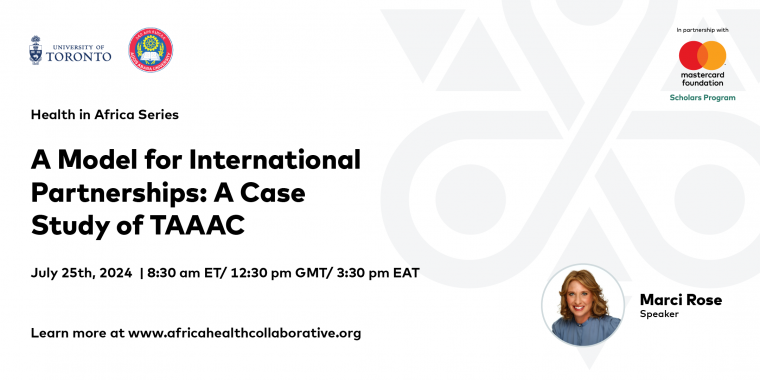
A Model for International Partnerships: A Case Study of TAAAC
The University of Toronto and Addis Ababa University are pleased to invite you to the next episode of the Health in Africa series discussing A Model for International Partnerships.
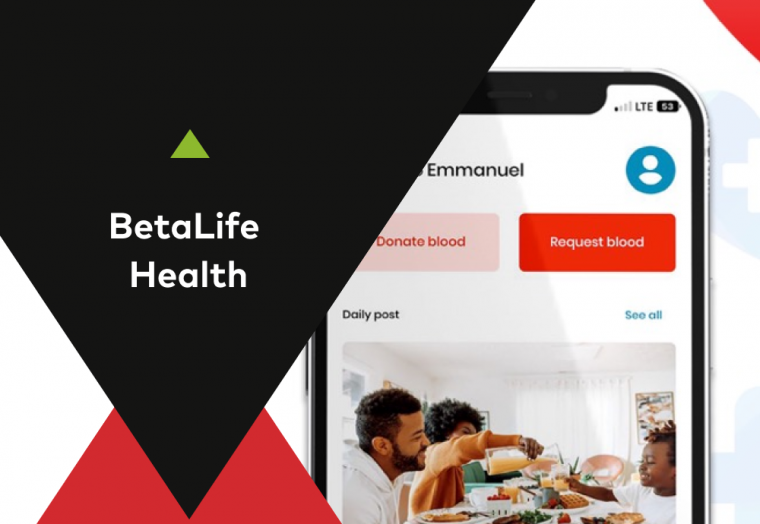
Venture Spotlight: BetaLife Health
BetaLife Health uses artificial intelligence (AI) to revolutionize blood supply management across Africa. Their platform uses predictive analytics to optimize blood inventory levels, distribution logistics and donor engagement, thereby improving the timeliness and availability of blood for transfusions.
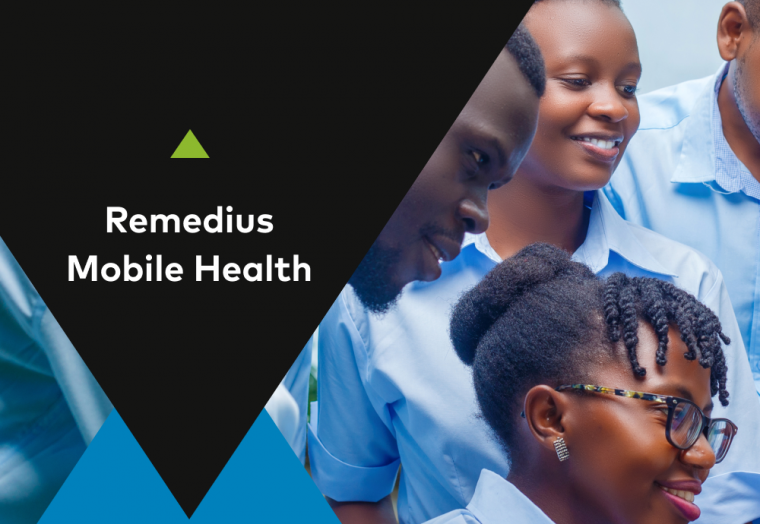
Venture Spotlight: Remedius Mobile Health
Remedius Mobile Health aims to combat the identified problems by leveraging telemedicine through the Remedius Live platform. They seek to provide fast virtual appointment scheduling with doctors and specialists at affordable rates of about five dollars and provide comprehensive care to chronically ill patients. This is executed through an integral network of facilities that provide physical care to these patients if need arises.

Venture Spotlight: Powerstove Energy
Powerstove designs and manufactures smart smoke-free cookstoves that also self-generate electricity for users to charge their mobile phones and power home appliances using proprietary renewable bio-pellets as fuel. These sustainable, mosquito repellent bio-pellets are produced from post-harvest crops and wood waste.

Venture Spotlight: SnooCODERED
SnooCODERED aims to solve the problem of inadequate healthcare infrastructure (systems, facilities and human resources) in Africa. It is doing this by providing a suite of cost-effective mobile healthcare logistics applications that democratize access to the ambulance or first aid response, facilitate the delivery of medical supplies to diverse populations, and improve contact tracing and epidemiological modelling.
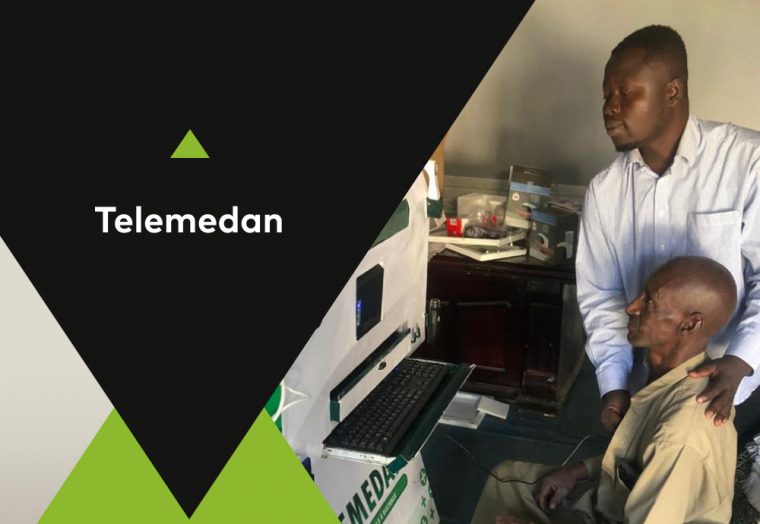
Venture Spotlight: Telemedan
Telemedan creates telemedicine kiosks in underserved communities in order to move toward closing the healthcare accessibility gap. Their kiosks facilitate video conferences between patient and doctor. They are equipped with medical devices for taking vital signs, such as ECG analysis, temperature measurement and blood oxygen saturation. Further, they feature stethoscopes, dermascopes, an HD camera and a scanner for the easy sharing of documents and lab results. With a focus on ease-of-access, Telemedan’s kiosks are user-friendly and accessible to those of varying levels of technology literacy.

Venture Spotlight: BuriCare Limited
BuriCare Limited has launched their Kangacare baby carriers, designed to address the critical need for newborn care, especially in regions lacking adequate neonatal facilities. With only four Neonatal Intensive Care Units available in their country, Kangaroo Mother Care emerged as a cost-effective solution, promoting vital skin-to-skin contact between mother and newborn to regulate body temperature. These locally knitted carriers are equipped with essential sensors capable of monitoring the baby’s temperature, pulse rate, and oxygen saturation. In the event of any abnormalities, an alarm alerts the mother to seek immediate assistance.
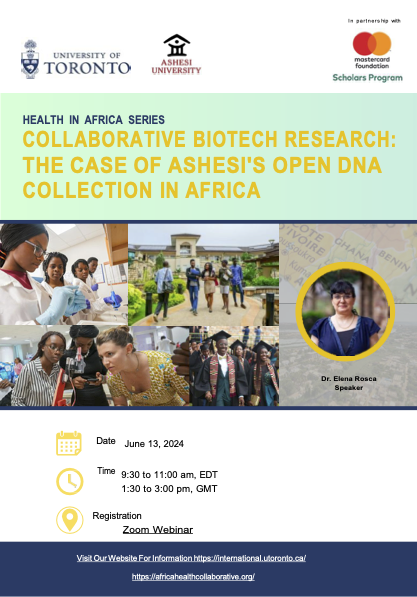
Collaborative Biotech Research: The Case of Ashesi’s Open DNA Collection in Africa
The University of Toronto and Ashesi University are pleased to invite you to the next episode of the Health in Africa series discussing Collaborative Biotech Research: The Case of Ashesi’s Open DNA in Africa.
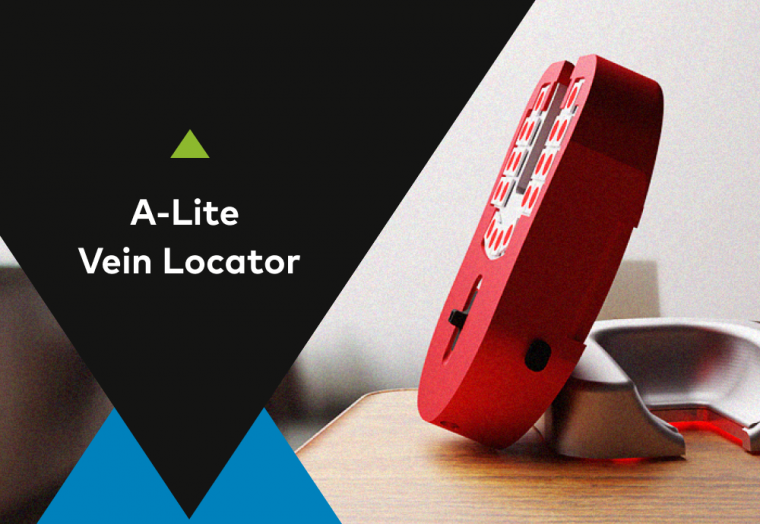
Venture Spotlight: A-Lite Vein Locator
The A-Lite Vein Locator is a medical device that facilitates the non-invasive detection of veins under the skin. Using the A-Lite Vein Locator shortens cannulation time by up to 88.5 seconds and lowers the risk of needle-stick injuries and infections. Further, the use of the A-Lite Vein Locator has been shown to decrease medical waste and unnecessary use of clinic resources.
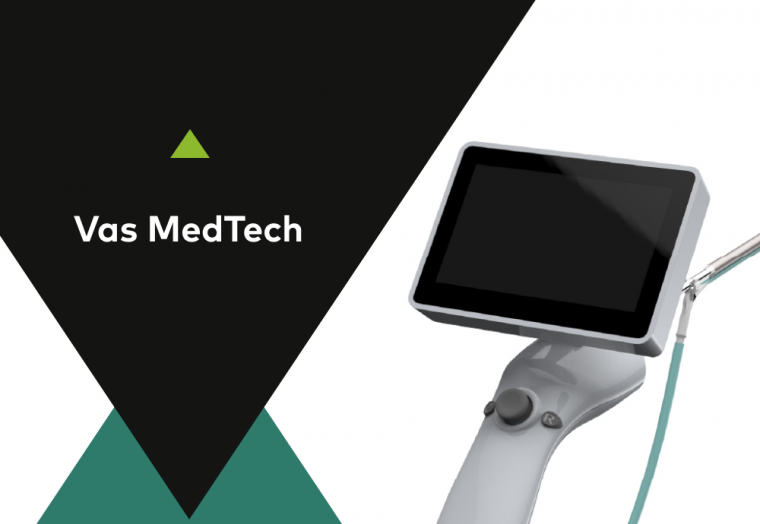
Venture Spotlight: Vas MedTech
Vas MedTech offers FlexiGyn, a portable, user-guided, and minimally invasive diagnostic camera that can operate in less specialized settings. This innovation is not only cost-effective, but also enhances accessibility. FlexiGyn enables community primary healthcare providers, such as nurses and general practitioners, to perform initial screenings and seamlessly consult with gynecologists for further diagnosis and referrals. FlexiGyn aims to make comprehensive women’s health care more accessible and convenient than ever before, thus addressing a global disparity in women’s health services.
